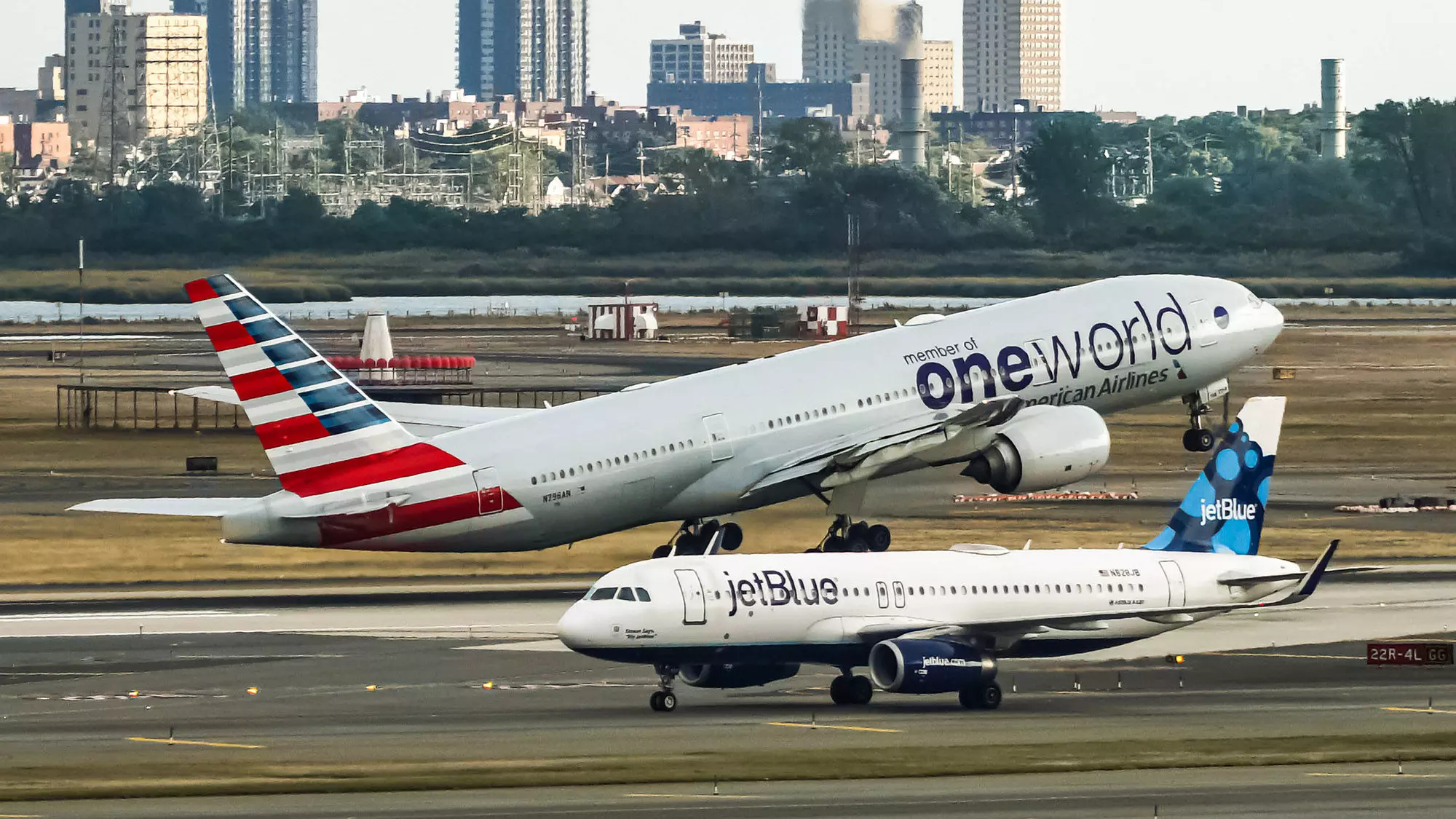In an unexpected turn of events, American Airlines has filed a lawsuit against JetBlue, seeking over $1 million concerning financial entanglements from their former Northeast Alliance (NEA). The legal move was publicly disclosed in a Texas Business Court filing on a recent Monday. The cooperation originally birthed in July 2020 sought to merge operations between Boston and major New York area airports; however, this ambitious partnership was marred by subsequent antitrust litigation initiated by the U.S. Department of Justice along with several local governments. This turbulent journey underscores a critical lesson in corporate alliances—it requires not only operational synergy but also a strong legal foundation.
The Underlying Issues of Revenue Sharing
Both airlines had crafted a detailed revenue-sharing agreement known as the Mutual Growth Incentive Agreement (MGIA), designed to calculate and allocate incremental revenues derived from their combined operations. However, the financial landscape changed dramatically when a federal judge determined that the NEA contravened the Sherman Antitrust Act, ordering its dissolution in May 2023. This judgment put everything into question, from operational frameworks to financial expectations, making the dialogue and settlements that followed increasingly complicated.
American Airlines claimed that despite multiple invoices dispatched between August 2022 and September 2023, JetBlue has refrained from fulfilling its financial obligations. JetBlue’s calculation of owed amounts differed from American’s by around 6%, leading to disputes that have clearly not been resolved amicably. It underscores a broader issue: how can such alliances sustain themselves when foundational agreements can be so vulnerable to legal scrutiny? The financial implications are significant, not only for growth but for long-term partnerships.
The Conflict Escalates
As American Airlines’ vice chairman and chief strategy officer, Steve Johnson, indicated in a memo to employees, the lawsuit arose after discussions to revive a refreshed partnership ended without consensus. This development reveals an essential truth within the airline industry: collaboration holds the potential for innovation, yet it can equally lead to severe repercussions when negotiations falter. The challenge lies in creating frameworks that not only promise profitability but can withstand external pressures, especially legal interventions that accompany antitrust scrutiny.
It’s worth noting that JetBlue’s leadership has remained conspicuously quiet in response to the lawsuit. CEO Joanna Geraghty merely acknowledged the legal ramifications during a recent earnings call while emphasizing that discussions had persisted since the NEA’s voiding. Such reticence may indicate a broader tactical approach to the legal battle, or perhaps a lack of resources to adequately address the claims brought forth by American Airlines. Regardless, the silence from JetBlue illustrates the intricate dance of public relations amid legal tension—a game of perception that adds another layer of complexity.
Implications for the Airline Industry
The fallout from this legal confrontation extends beyond individual company balance sheets; it serves as a cautionary tale for alliances within the airline industry. When large-scale partnerships falter, the impact reverberates through multiple stakeholders, including employees, customers, and investors. For potential collaborations, the implications are clear: the diligence required extends far beyond feasibility studies and operational logistics. Legal structures must be foolproof, as demonstrated by the ramifications faced by both airlines.
Furthermore, this incident raises questions about the future of collaborative efforts in air travel. Will airlines approach partnerships with a new level of cynicism, or could there emerge a movement toward more transparent negotiations? The industry is at a pivotal moment where trust must be re-earned, foundations re-established, and new strategies must focus on preventing similar pitfalls.
American Airlines’ lawsuit against JetBlue exemplifies the delicate balance between ambition and practicality that defines corporate partnerships today. In their quest for operational advantages, airlines must navigate a myriad of legal landscapes, particularly within a regulatory environment that increasingly scrutinizes collaborative efforts. The future relationship between American and JetBlue—not only in terms of financial settlements but overall partnership dynamics—remains uncertain, and the echoes of this legal clash will undoubtedly shape the editorial of future airline alliances.


Leave a Reply